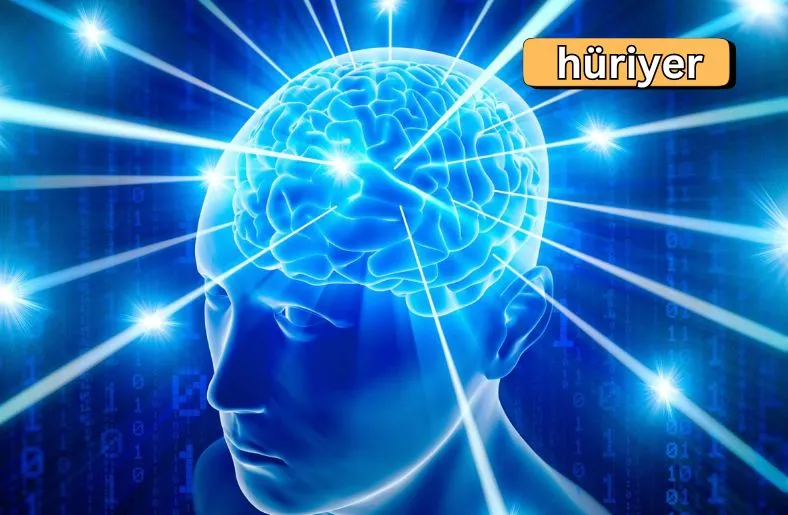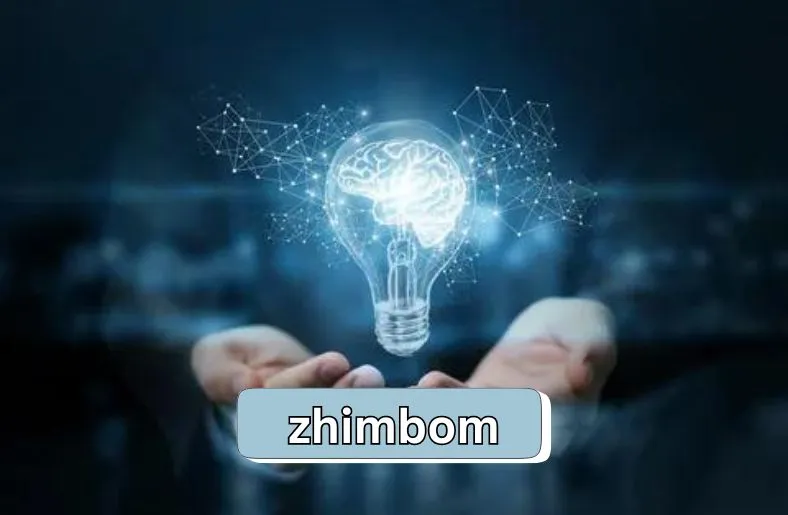Introduction
Hüriyer, a concept steeped in the quest for freedom and cultural emancipation, transcends mere definitions. It embodies a profound journey towards liberation, encompassing diverse dimensions of human existence. This term, originating from various cultural histories, resonates deeply across civilizations, fostering a universal aspiration for personal and communal empowerment.
The exploration of Hüriyer unveils layers of meaning that extend beyond conventional interpretations. It invites us to delve into its roots, spanning ancient philosophies to modern-day ideologies, each contributing to its evolving significance. Understanding Hüriyer requires us to navigate through its complexities, embracing its role in shaping individual identities and collective narratives.
As we embark on this exploration, we uncover how Hüriyer intersects with cultural heritage, philosophical insights, and contemporary perspectives. This journey not only illuminates its relevance in diverse cultural contexts but also underscores its transformative potential in fostering inclusive societies. Join us as we unravel the essence of Hüriyer, liberating minds and cultures alike in the pursuit of a more enriched and harmonious world.
The Concept of Hüriyer
Hüriyer, deriving from diverse cultural roots, signifies more than freedom; it embodies a holistic liberation encompassing personal, social, and spiritual dimensions. This concept emphasizes not just political freedoms but also mental and emotional well-being.
Originating from ancient philosophies, Hüriyer advocates for individual autonomy and self-expression. It transcends geographical boundaries, resonating deeply across cultures and histories.
In contemporary contexts, Hüriyer challenges societal norms, advocating for equality and justice. It promotes cultural diversity, celebrating traditions while embracing global interconnectedness.
The essence of Hüriyer lies in fostering a balanced and harmonious existence. It encourages individuals to overcome internal and external constraints, promoting personal growth and societal progress.
Exploring Hüriyer reveals its transformative power in shaping identities and community dynamics. It encourages dialogue and understanding, paving the way for inclusive and tolerant societies.
Understanding Hüriyer involves recognizing its multifaceted nature. It integrates spiritual fulfillment with social responsibility, offering a framework for meaningful engagement in a complex world.
Embracing Hüriyer entails embracing diversity and promoting mutual respect. It invites individuals to explore their cultural heritage while embracing a shared humanity.
In essence, Hüriyer is a journey towards liberation, advocating for holistic well-being and societal harmony. It challenges us to redefine freedom in a way that uplifts both individual lives and collective aspirations.
Hüriyer in Cultural Contexts
Hüriyer’s impact extends deeply into cultural realms, influencing how societies view freedom and identity. Across various cultures, from Eastern philosophies to Western ideologies, Hüriyer embodies liberation beyond mere physical freedom.
Culturally, Hüriyer promotes diversity by valuing different beliefs and traditions. It encourages individuals to celebrate their heritage while embracing global unity.
In indigenous cultures, it manifests as a quest for ancestral wisdom and respect for natural rhythms. It emphasizes harmony with nature and ancestral teachings.
In Western societies, it resonates through movements for civil rights and social justice. It challenges systemic inequalities and advocates for equal opportunities for all.
Across the globe, Hüriyer sparks conversations on cultural preservation and innovation. It encourages communities to safeguard their traditions while adapting to modern challenges.
In artistic expressions, it inspires creativity and challenges artistic boundaries. It fosters cultural dialogue through music, literature, and visual arts.
Understanding Hüriyer in cultural contexts requires appreciating its universal aspirations and localized applications. It bridges cultural divides by promoting mutual understanding and respect.
Ultimately, it in cultural contexts serves as a beacon of unity amidst diversity. It fosters a global tapestry where cultural richness thrives alongside shared human values.
Philosophical Insights into Hüriyer
Hüriyer, from a philosophical standpoint, delves into the essence of human existence. It explores the idea of personal freedom and spiritual fulfillment.
Philosophers throughout history, from ancient times to modern thinkers, have pondered Hüriyer’s significance. They debate its implications for individual autonomy and societal harmony.
In existentialist philosophy, it represents the quest for authentic living. It urges individuals to define their own values and meanings in life.
From a Stoic perspective, Hüriyer emphasizes inner freedom amidst external challenges. It encourages resilience and acceptance of life’s uncertainties.
In Eastern philosophies like Buddhism and Taoism, it aligns with spiritual liberation. It involves transcending desires and finding inner peace.
Existential philosophers like Sartre and Camus view it as confronting the absurdity of existence. It calls for taking responsibility for one’s choices and actions.
In contemporary ethics, it guides debates on human rights and social justice. It demands respect for dignity and equality across diverse cultures.
Understanding Hüriyer philosophically requires contemplating its universal principles and practical applications. It invites reflection on what it means to live a meaningful and liberated life.
Ultimately, philosophical insights into it enrich our understanding of freedom, ethics, and human potential. They inspire us to pursue personal growth while fostering a more just and compassionate society.
Hüriyer in Modern Thought
In contemporary discourse, Hüriyer resonates deeply as a catalyst for societal progress and individual empowerment.
Modern thinkers view it as a holistic concept encompassing personal, social, and cultural liberation.
Psychologically, Hüriyer promotes mental well-being by encouraging self-expression and emotional resilience.
Politically, it advocates for democratic values, human rights, and equitable governance structures.
In educational settings, Hüriyer guides curriculum development towards fostering critical thinking and global citizenship.
Technologically, Hüriyer intersects with digital freedoms, advocating for online privacy and ethical use of information.
Economically, it supports fair labor practices and economic opportunities for marginalized communities.
Ecologically, it inspires environmental stewardship and sustainable development practices.
Philanthropically, it motivates charitable efforts and social entrepreneurship for community upliftment.
Hüriyer in modern thought thus embodies a multifaceted approach to advancing freedom, equality, and justice in contemporary society.
Impact of Hüriyer on Minds
The concept of Hüriyer profoundly influences how individuals perceive their own freedoms and responsibilities.
It encourages self-reflection, fostering a deeper understanding of personal values and aspirations.
By promoting autonomy, it empowers individuals to make informed choices and pursue their goals.
In education, it cultivates critical thinking skills and encourages questioning of societal norms.
Psychologically, Hüriyer supports mental resilience by emphasizing self-expression and emotional well-being.
Socially, it inspires empathy and respect for diversity, fostering harmonious community interactions.
Spiritually, it encourages individuals to seek inner peace and connect with their higher ideals.
Culturally, Hüriyer promotes the preservation of traditions while embracing progressive change.
Economically, it advocates for fair opportunities and equitable distribution of resources.
Overall, Hüriyer’s impact on minds is transformative, shaping individuals into conscientious global citizens.
Hüriyer and Cultural Liberation
Hüriyer advocates for embracing cultural diversity and preserving traditional heritage.
It promotes respect for different customs, languages, and artistic expressions.
By celebrating diversity, Hüriyer fosters inclusivity and understanding among communities.
Cultural liberation through it safeguards indigenous knowledge and historical narratives.
It encourages individuals to explore and appreciate various cultural perspectives.
Hüriyer challenges stereotypes and biases, promoting a more tolerant and cohesive society.
Cultural liberation under it empowers marginalized groups to reclaim their cultural identities.
It supports initiatives that promote cultural exchange and artistic innovation.
Ultimately, it envisions a world where cultural richness thrives without boundaries or prejudices.
Challenges and Critiques
While Hüriyer offers a vision of freedom, it faces significant obstacles in practice.
One challenge is cultural resistance to changes that may disrupt traditional norms.
Some argue that too much emphasis on individual freedom could weaken social cohesion.
Implementing it ideals requires overcoming entrenched power structures and systemic inequalities.
Critics suggest that Hüriyer’s universal application may overlook local cultural contexts and values.
Practical challenges include balancing individual rights with societal responsibilities.
Critiques often point out the potential for it to neglect collective well-being in pursuit of personal freedom.
Navigating these challenges requires thoughtful dialogue and adaptation to diverse cultural perspectives.
Despite criticisms, advocates argue that it remains essential for promoting human dignity and autonomy.
Conclusion
In conclusion, Hüriyer stands as a beacon of hope and transformation in our quest for freedom and cultural emancipation. From its philosophical roots to its modern applications, it embodies a holistic vision that transcends boundaries, promoting individual autonomy and societal harmony. It challenges us to embrace diversity, uphold human dignity, and strive for justice. Despite facing critiques and practical challenges, it’s impact on minds and cultures is undeniable, fostering a global dialogue on liberation and inclusivity. As we continue to navigate the complexities of our world, it inspires us to envision a future where freedom and equality are not just ideals but lived realities for all.





